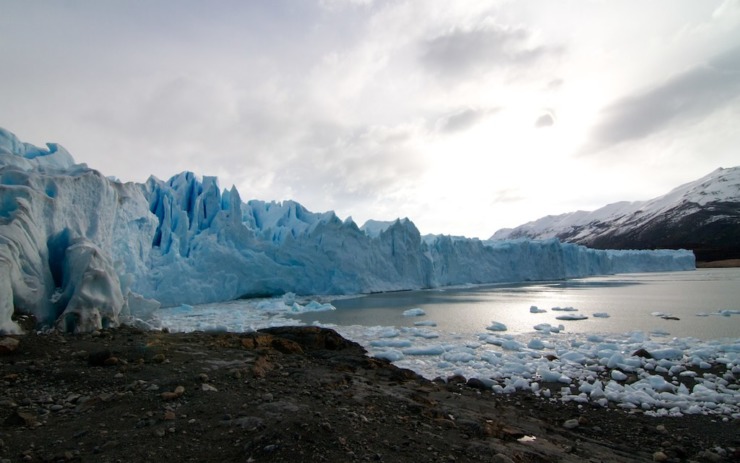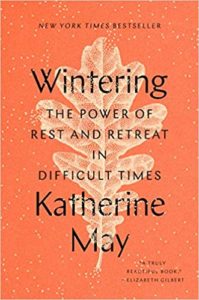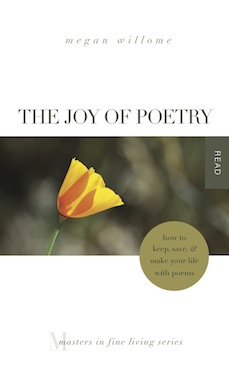The Surprise of Lapwing
We began this book club where Katherine May begins Wintering, with Edward Thomas’ poem Thaw. “Thaw” is also the title of the last part her epilogue. After hot water and after cold water, comes thaw. Blessed thaw. Winter always does come but it also always does pass.
But right before the season ends, May meditates on Sylvia Plath’s poem “Wintering,” the inspiration for the book’s title. (“Wintering” is also our By Heart poem for February. It’s not too late to gather ye your honey, while ye may.)
May tells us that “Wintering” is the poem which Plath intended to end her collection Ariel. But history had other ideas — ones that left no room for a sweet taste of spring.
May writes:
In the very depths of her own winter, Plath seems to reach for a way to survive through work — women’s work, the kind that entails quiet hours in the house. ‘Winter is for women,’ she says in ‘Wintering.’ It is perhaps a time when the feminine arts come into their own, but she is also commenting, I think, on the lean times that women can survive. It leaves me wishing that there had been more for her to do: more honey to spin; more bees to feed.”
The fact that I have been able to survive my own winter is testimony to the previous winters that have snowed and thawed across my days. My inner bees are busy. If I am quiet, I can hear them hum.
May’s Wintering does not end “like a neat narrative arc should: life is settled again, certain; all my problems are solved, all my worries resolved.” Instead, “several winters came at once,” changing the course of the book. But now she knows what to do: “When I started feeling the drag of winter, I began to treat myself like a favoured child: with kindness and love.” She takes a walk, in preparation for the signs of change this winter will bring.
At the edge of the sea she thinks she sees the sight that began the book — a murmuration of starlings. But no, these birds are too large. It’s different this time. It’s lapwing, and they are doing something she never knew they could do..
Lapwing
A change on the wing, in the air, in me.
Black polka dots splash the edge of the sea—
The skill of happiness and of sadness too.
I never knew I could do this: I do.
Read and Write with Us
Each week I am writing a poem drawn from Wintering and from Edward Thomas’ Thaw. Won’t you write your own winter quatrain too?
We’re reading Wintering on a schedule that follows the calendar, from fall to winter to spring.
February 9: Hot Water & Starling (Prologue-September-October-November)
February 16: Cold Water & Gulls (December-January-February)
February 23: Thaw & Lapwing (March-Late March)
Photo by indigoMood, Creative Commons, via Flickr. Post by Megan Willome.
Browse previous Wintering book club posts
I loved this book. As soon as I finished, I began reading it again.”
—David Lee Garrison, author of Playing Bach in the D. C. Metro
- Perspective: The Two, The Only: Calvin and Hobbes - December 16, 2022
- Children’s Book Club: A Very Haunted Christmas - December 9, 2022
- By Heart: ‘The night is darkening round me’ by Emily Brontë - December 2, 2022



Debra Hale-Shelton says
May writes about knitting and the health benefits of crafting. My 91-year-old mother reads and watches TV but mostly loves crocheting. I don’t knit or crochet. I write, not always for publication. So, I identify with May’s statement that “It feels good to be making something, even while my contribution to the world feels very small.” And like May, I would love to have a beehive, though the likelihood of that ever happening is dim.
I’m coincidentally reading Sylvia Plath’s “Ariel: The Restored Edition, “ edited by her daughter. It ends with “ Wintering.”
Thank you for leading this discussion.
Megan Willome says
Debra, it makes me so happy to hear there’s a restored edition of “Ariel” with “Wintering” at the end, in its proper place. I’ll be writing about the poem on Friday for By Heart.
I think it’s important to have nonwriting things to do with our hands. Playing piano (badly) does that for me.
So glad you’ve joined us!
L.L. Barkat says
About the hands, I did think of this:
https://www.tweetspeakpoetry.com/2016/06/02/poets-writers-toolkit-use-hands/
And it motivates me to do more off-screen. Yesterday I took a long time to cook, taking care with all the slicing, washing (cold, cold water—thank you, Megan for inspiring me as to cold water! 🙂 ), sorting, scattering, stirring. The fragrances alone were worth taking my time. But I was also cognizant of the hand-work.
I have so much more I want to say about this book. But it is taking time to form thoughts into something shareable. We might still be discussing over the next few weeks. 😉
Megan Willome says
I’m not going anywhere. Happy for the wintering to extend a bit longer.
Debra Hale-Shelton says
Your references to cooking made me smile. I’m better known in my family for cooking nightmares than successes. Still, amid another ice storm here yesterday, I decided to try a new method for roasting potatoes after having read about it in Stanley Tucci’s memoir “Taste.” As usual, I thought they were wonderful while my mom said they were “pretty good.” Still, I felt a tad proud of myself, watched “Babette’s Feast” for the third time and spent hours enjoying a friend’s new novel. In the end, that ice storm wasn’t so bad after all.
Megan Willome says
Cooking is such a good way to use our hands! And even culinary adventures that don’t work out usually teach us in some way.
Bethany R. says
I haven’t made it all the way through the book, but I enjoyed reading this post and all the thoughts in the comments.
Megan, your “Lapwing” poem is beautiful. I love that line, “The skill of happiness and of sadness too.”
Megan Willome says
Thanks, Bethany! I really enjoyed using Edward Thomas’ poem as a template to write my own. I know better than to try that with Sylvia Plath!
Debra Hale-Shelton says
The poem was, indeed, lovely.
HCB says
Some of my underlines and comments from these chapters:
When talking about the encouraging, yet empty posts on social media, May wrote, “This is where we are now, endlessly cheerleading ourselves into positivity while erasing the dirty underside of real life.” I wrote a note agreeing with May, saying, “Erasing the dirty underside can be a huge mistake.” I think that is the whole point of this book. The thesis. Don’t live in denial. Allow yourself to lean into it. I liked the part in the previous section about finding the ways to take care of and nurture yourself during your winter, but it’s okay to let it be winter.
(This one might be more controversial and I could be errant in my thinking. Feel free to disagree) Later, she writes, “We seem to be living in an age when we’re bombarded with entreaties to be happy, but we’re suffering from an avalanche of depression. We’re urged to stop sweating the small stuff, yet we’re chronically anxious.” I can’t help but wonder how much this the aspect of this “age” to which she’s referring is more of a first-world problem. I was in an office lunch today and some of the young women (in their late-20s) were talking about wanting to get botox for their foreheads. I asked why and they said they didn’t have good lines up there and they wanted to get rid of them. I teased them that they were experiencing first-world problems. Sometimes I feel like someone in a developing nation would look at my life and say, “Okay, so what exactly is it that has you “suffering from an avalanche of depression” or “chronically anxious?” I guess there comes a time when I have to decide the difference between a true winter and an obstacle in my way.
Megan Willome says
HCB, this is why I have radically changed my interaction with social media. It’s now purely professional, get in-get out quick.
I think we all need discernment about, as you say, “the difference between a true winter and an obstacle in my way.” When each of my parents died, I had a wintering, with some depression, but it was seasonal. My journey has had other obstacles that are not seasonal. If it is an obstacle, it’s one I have to carry around with me—more like a heavy backpack that I must adapt to.
Debra Hale-Shelton says
“It leaves me wishing that there had been more for her to do: more honey to spin; more bees to feed.”
I’m the student who just keeps talking, but I love these words. And just as there truly was much more Plath could have done if she’d been able to realize that, there’s still more we, I can do.
As I am in the longest winter of my life, I must realize this too. And I have to — no, I want to — do those things too. So, I must, I shall.
We can learn so much from literature.
Megan Willome says
Yes, Debra. You shall.